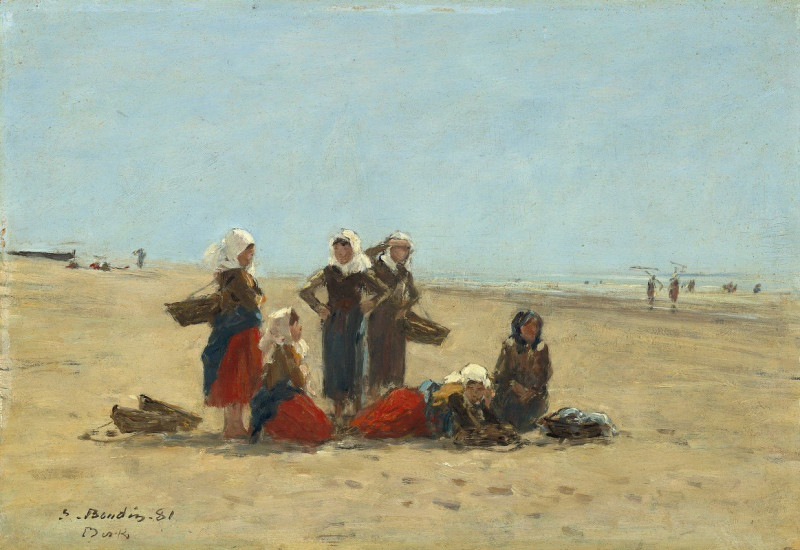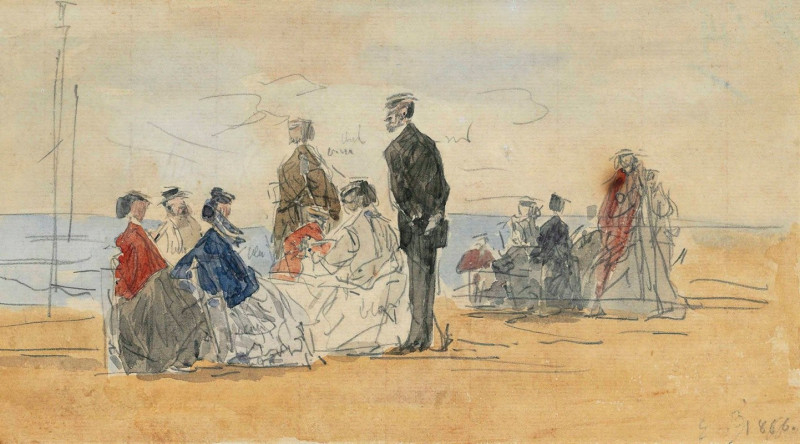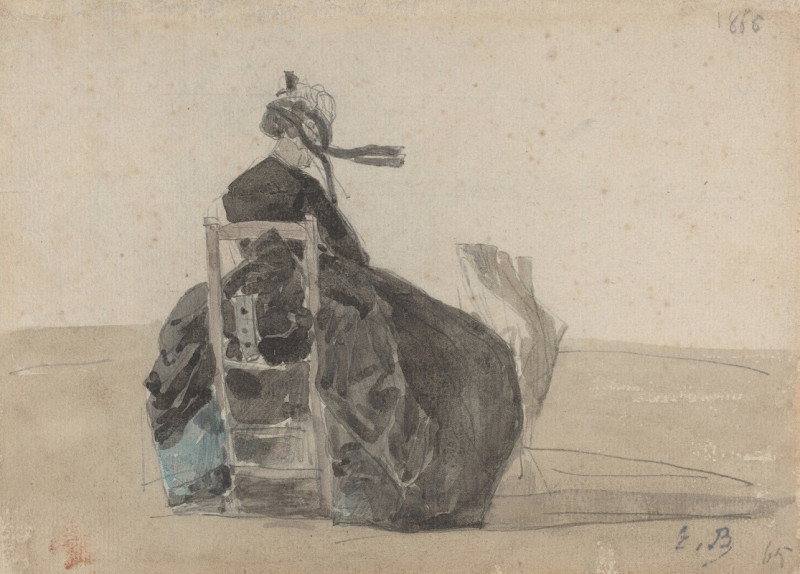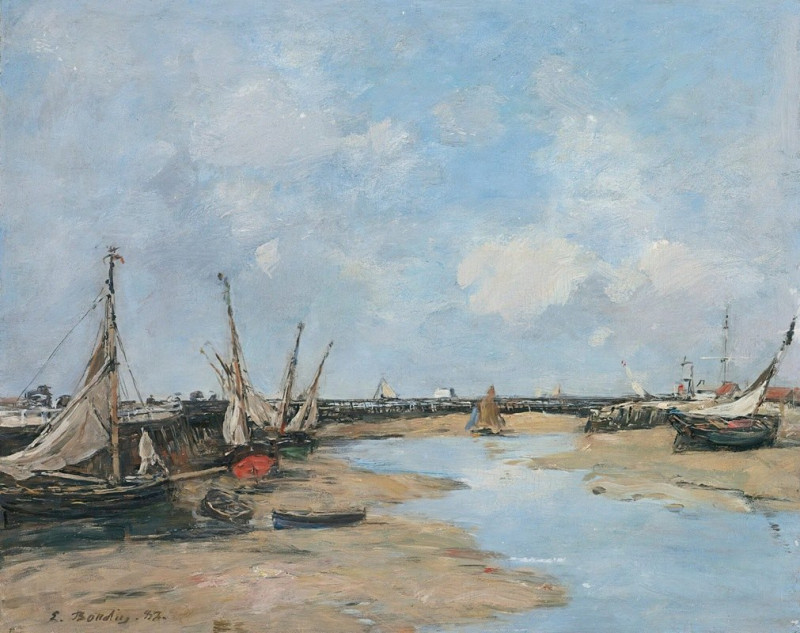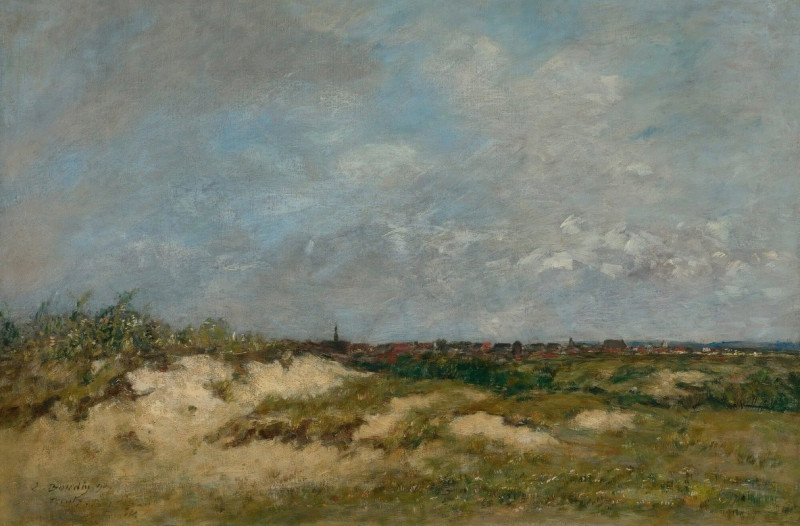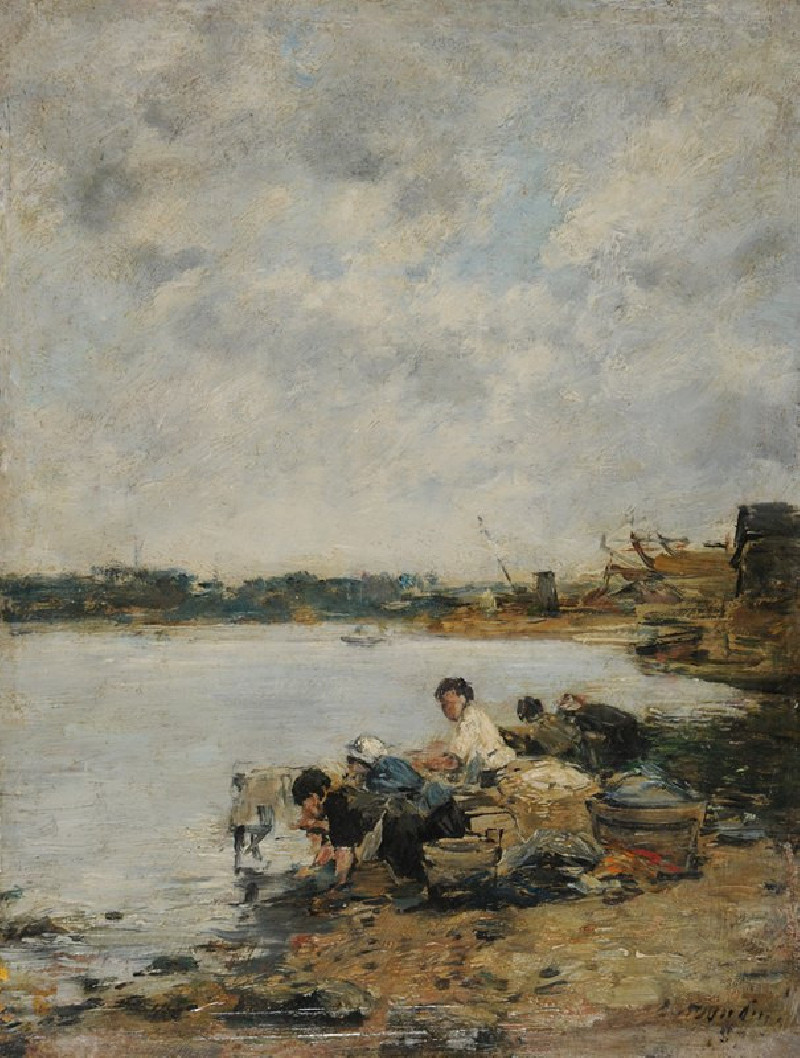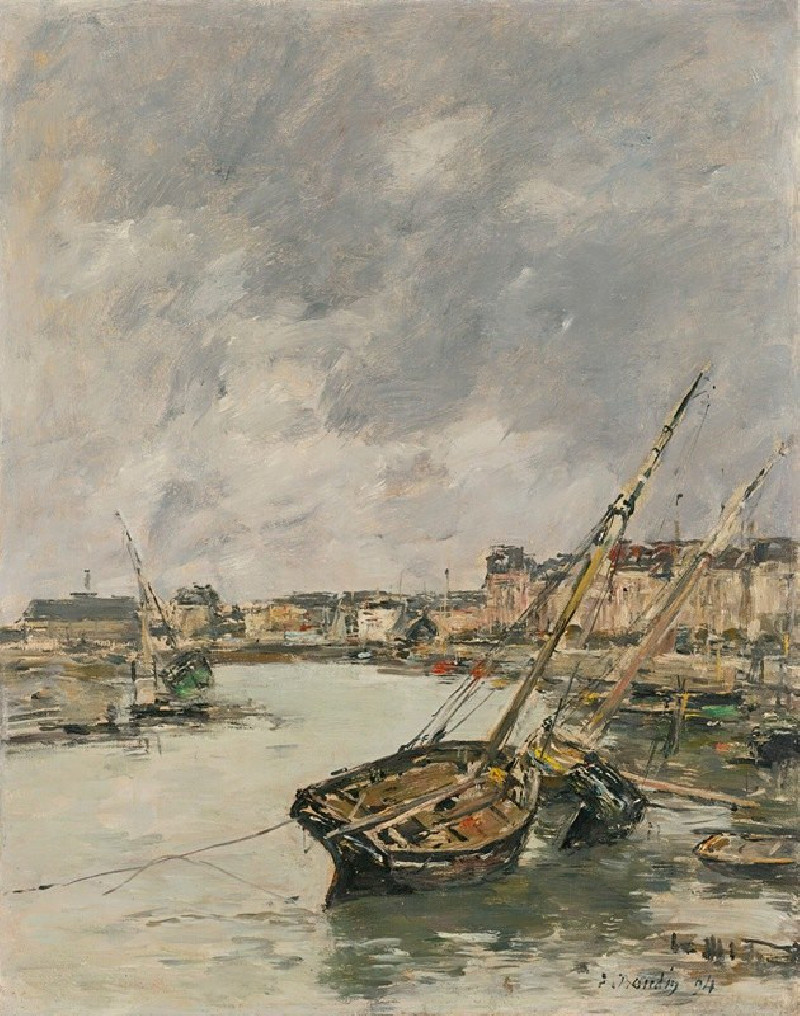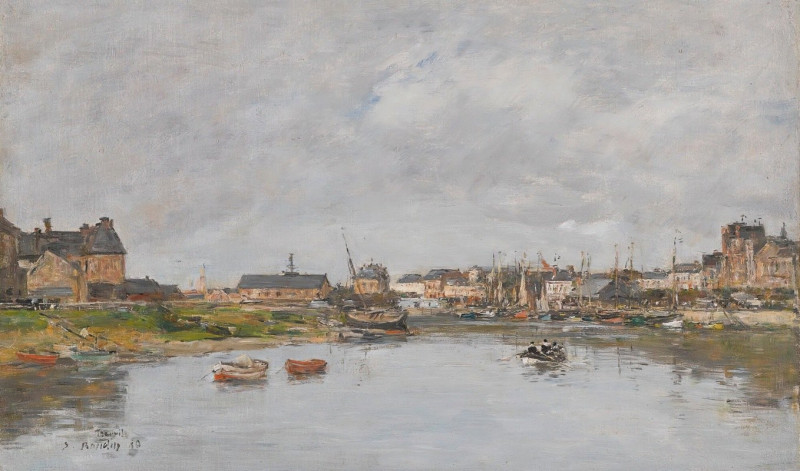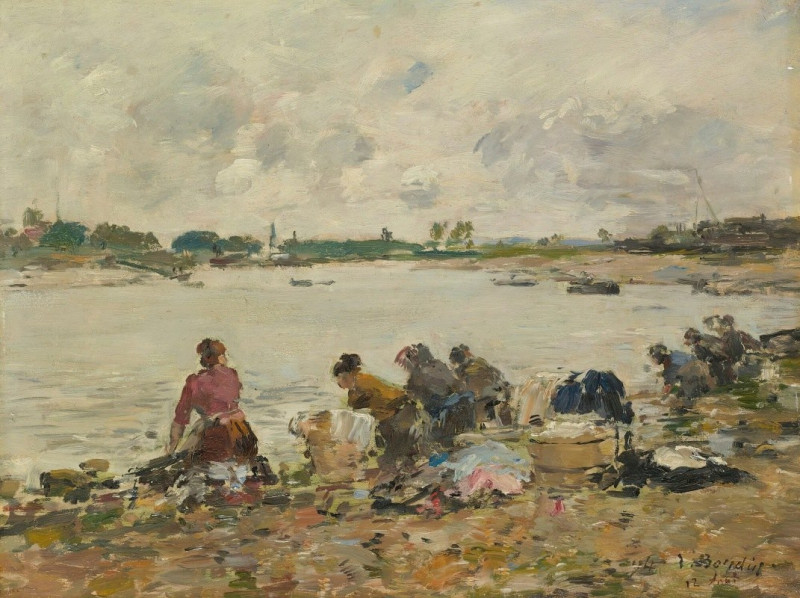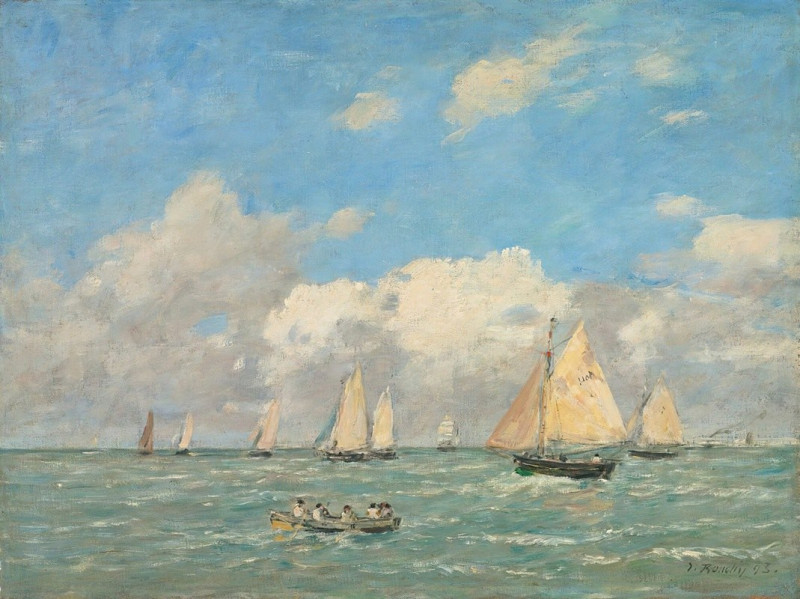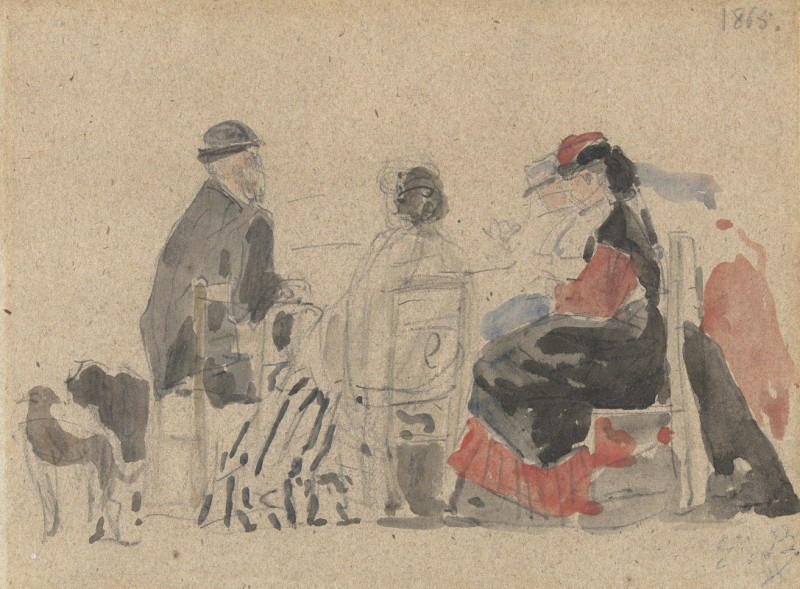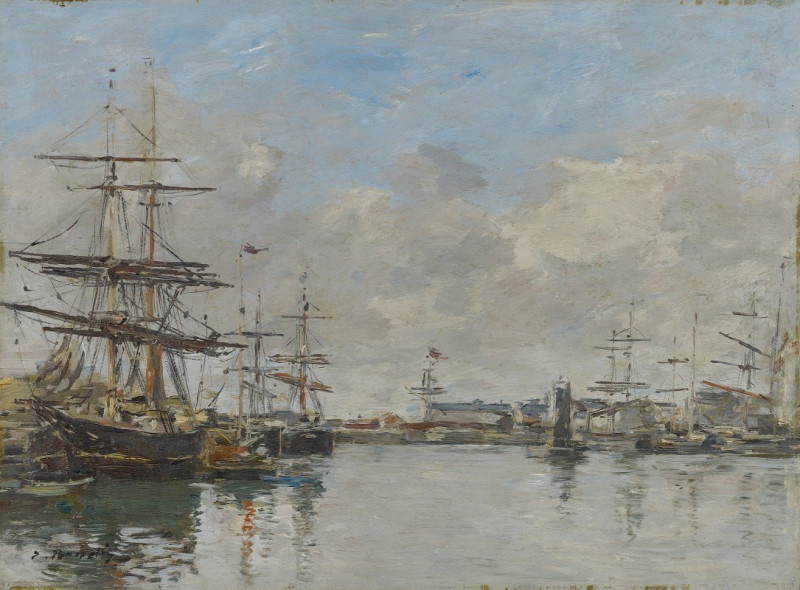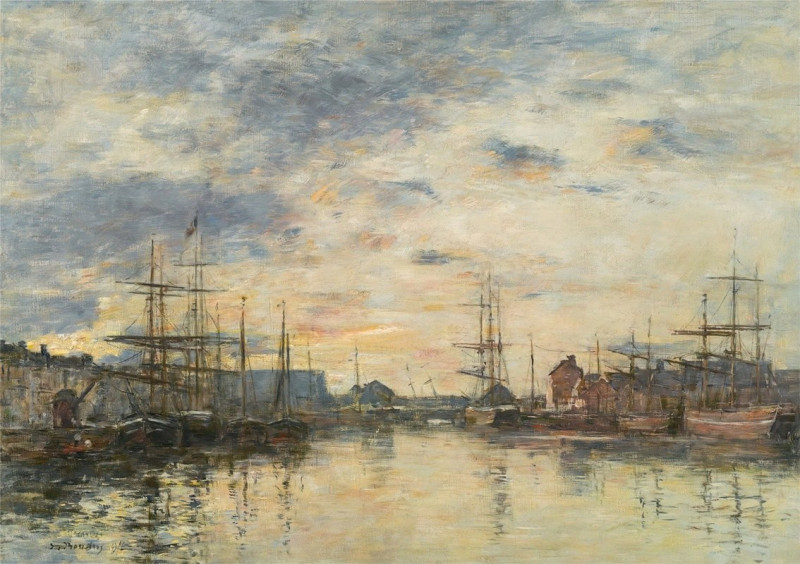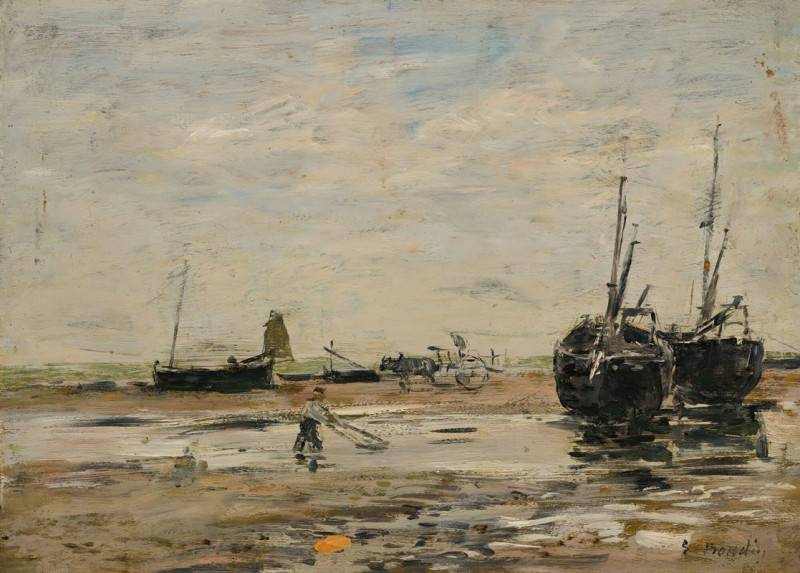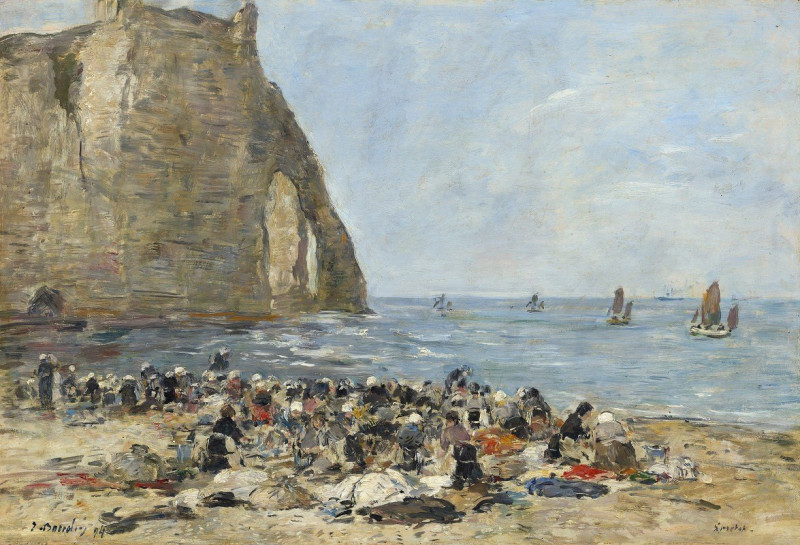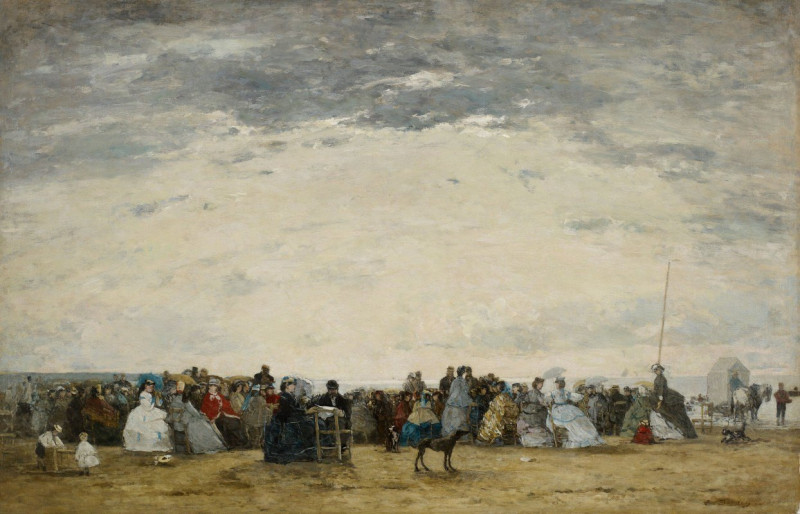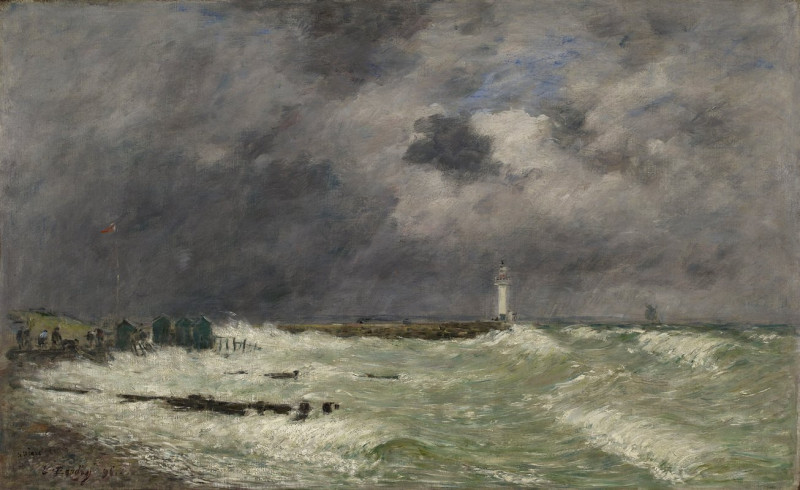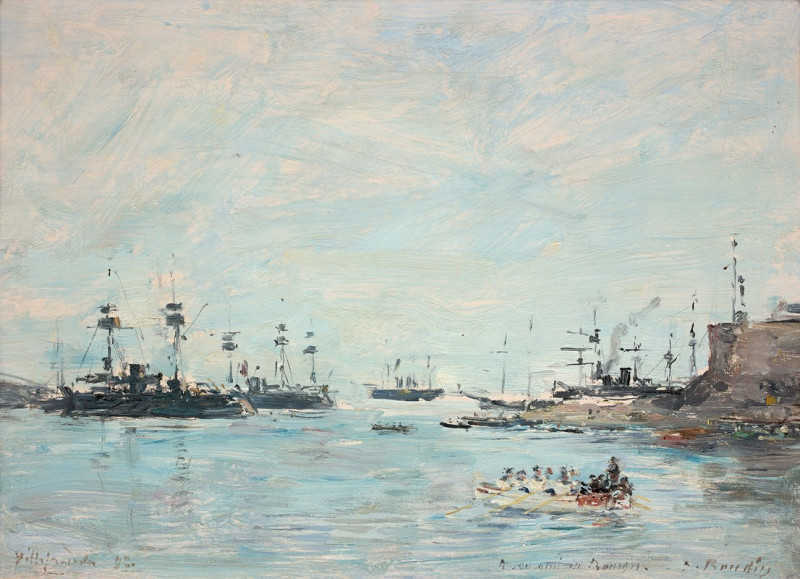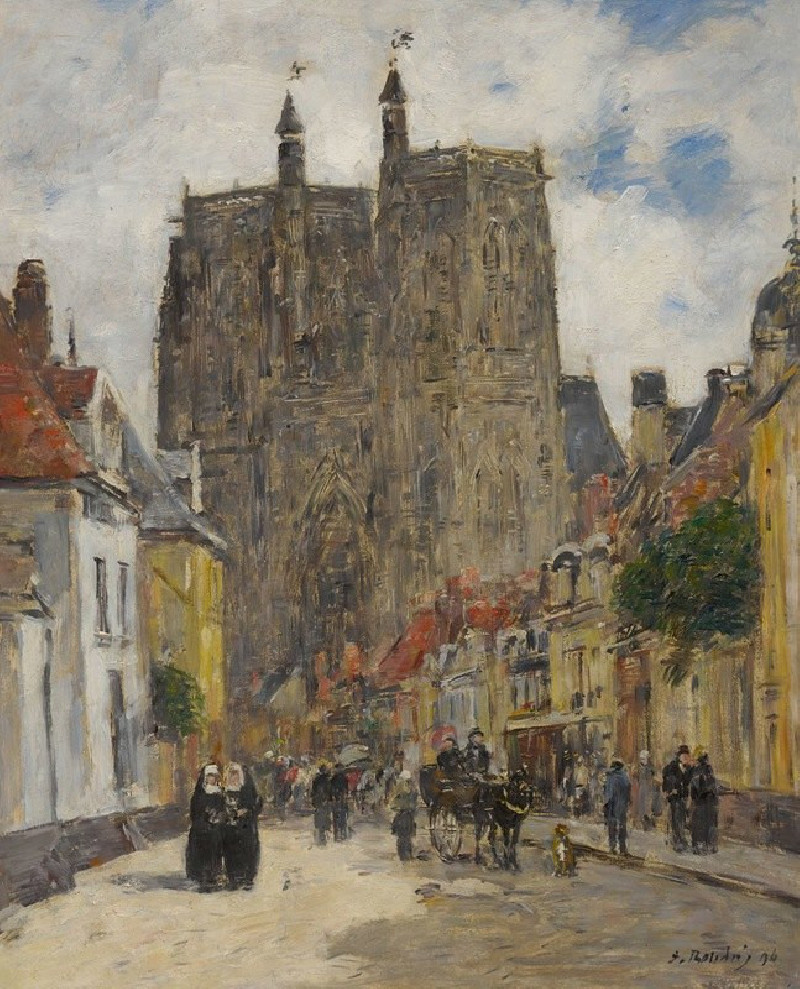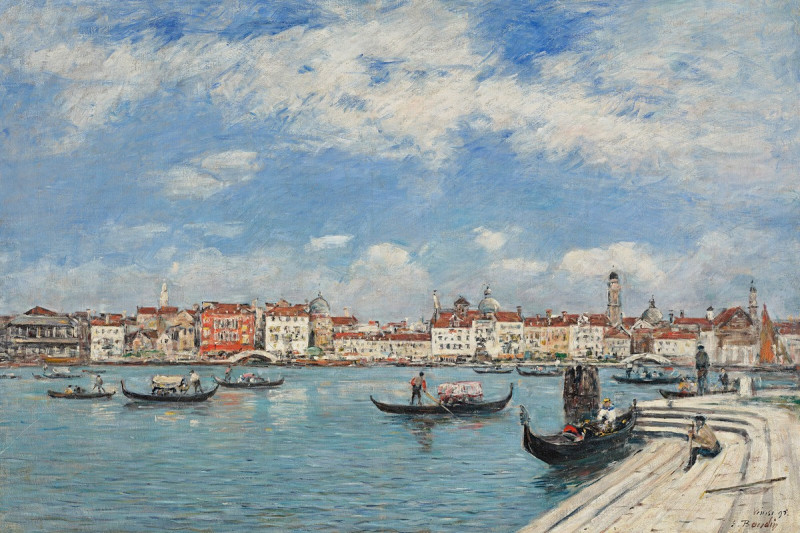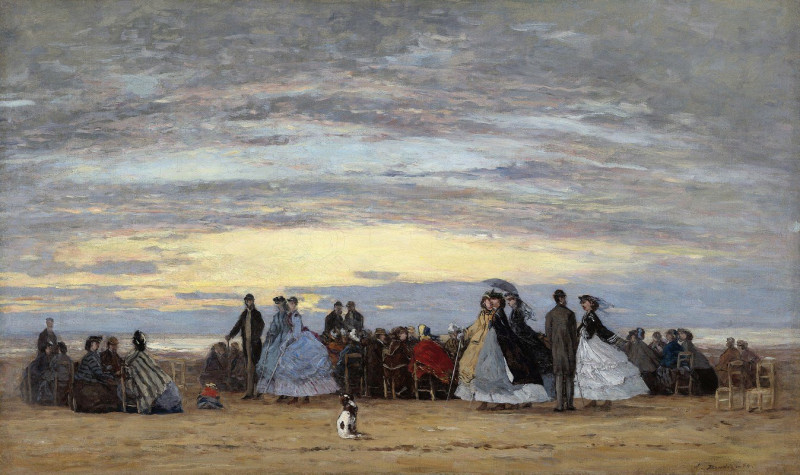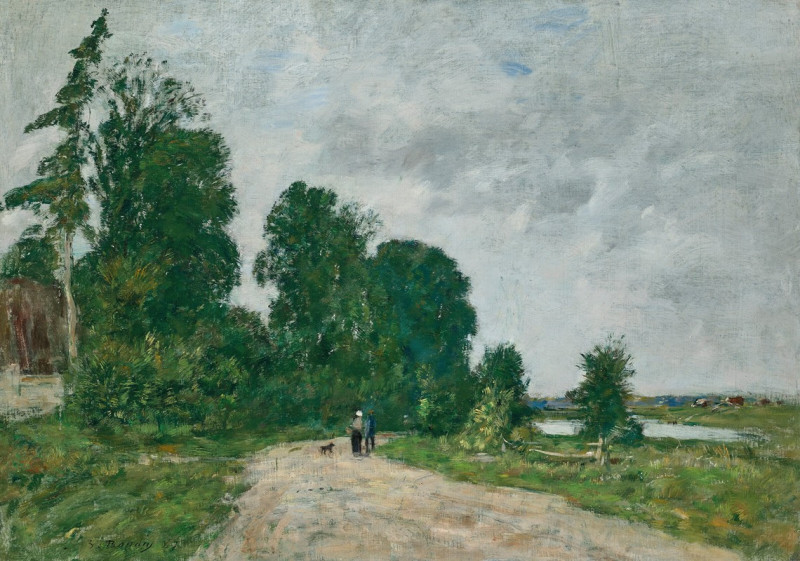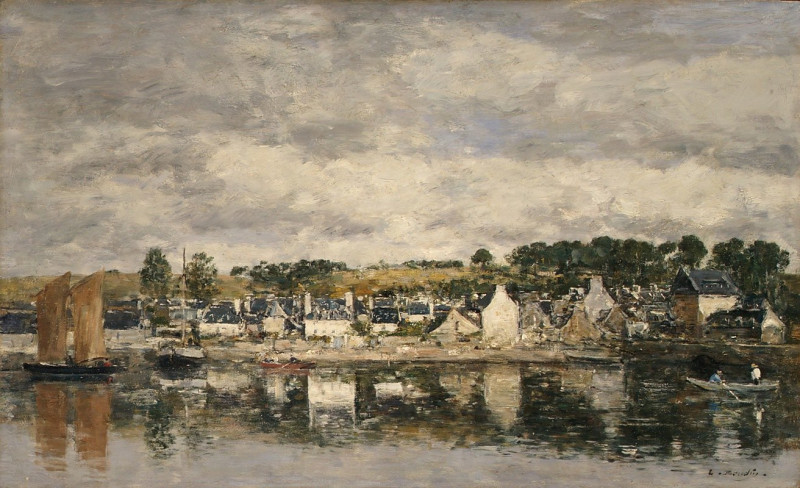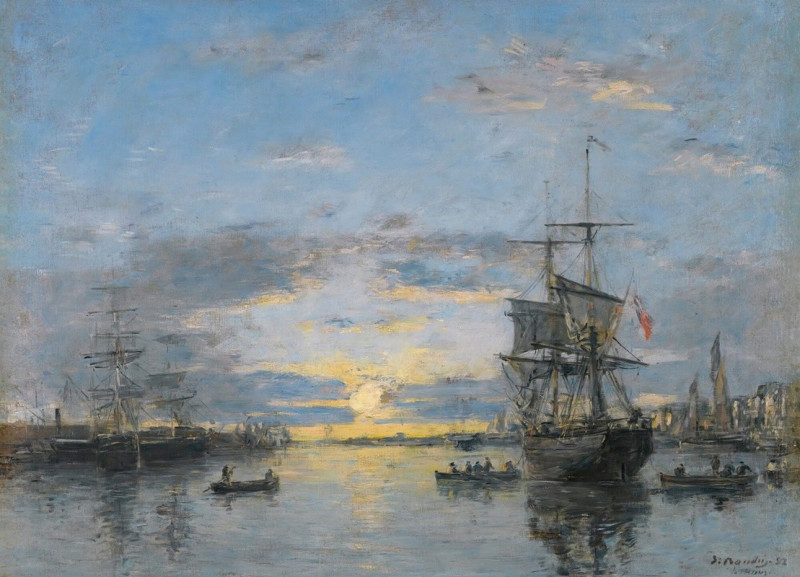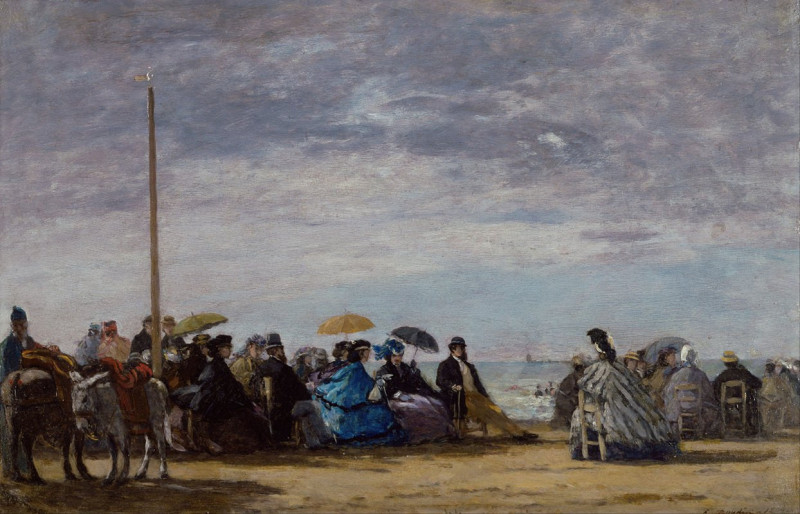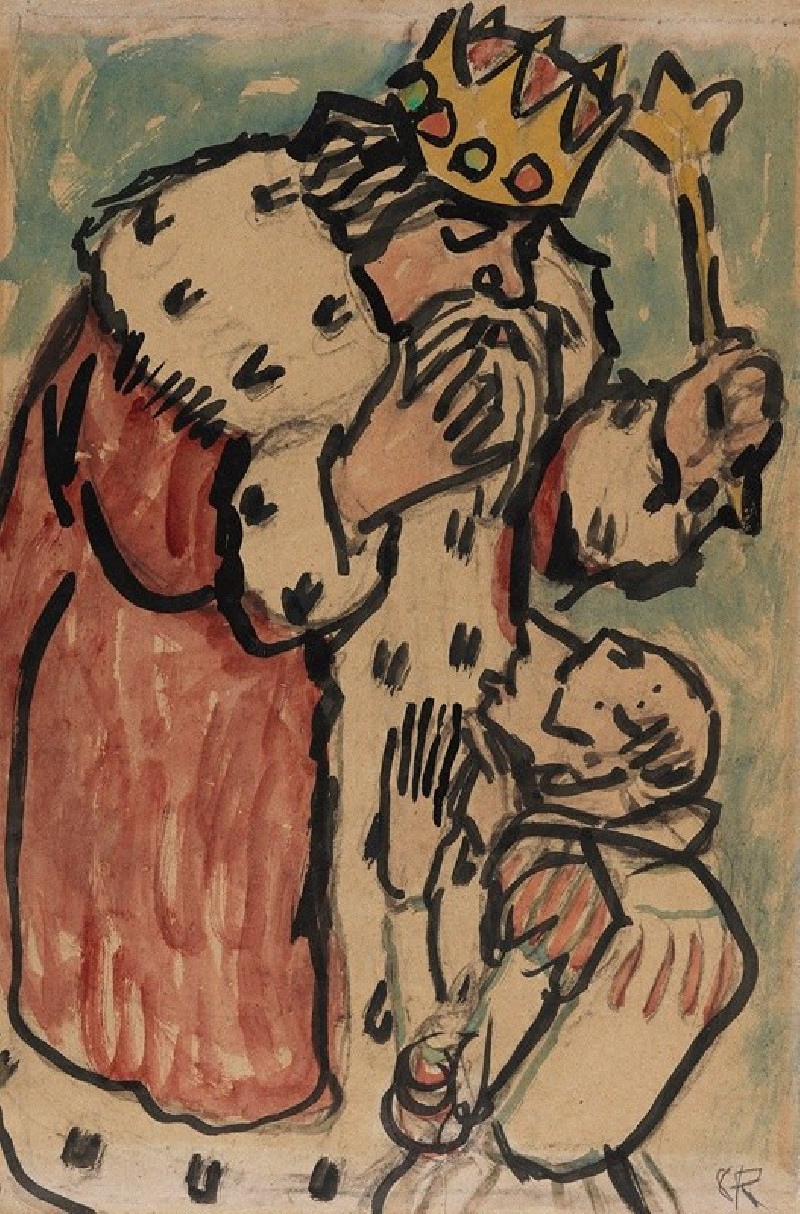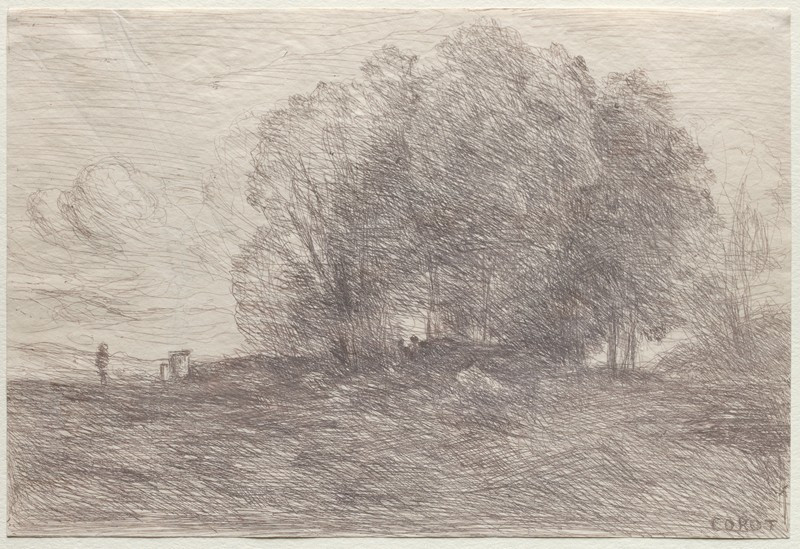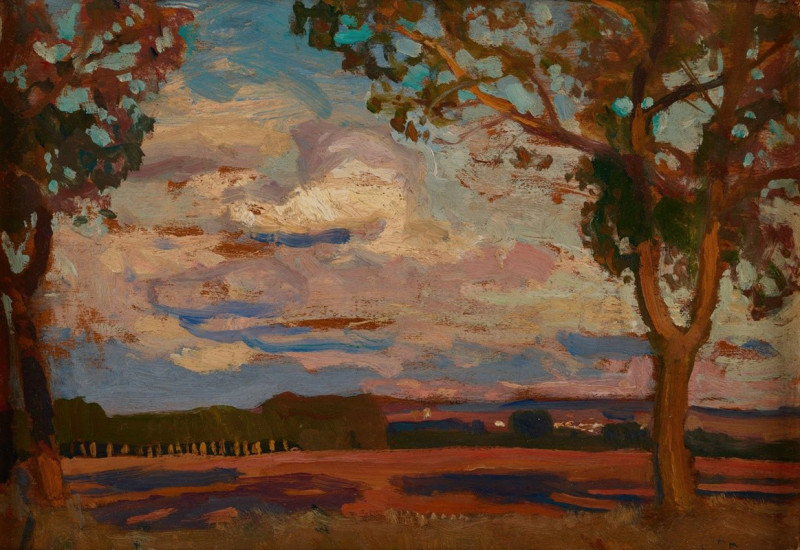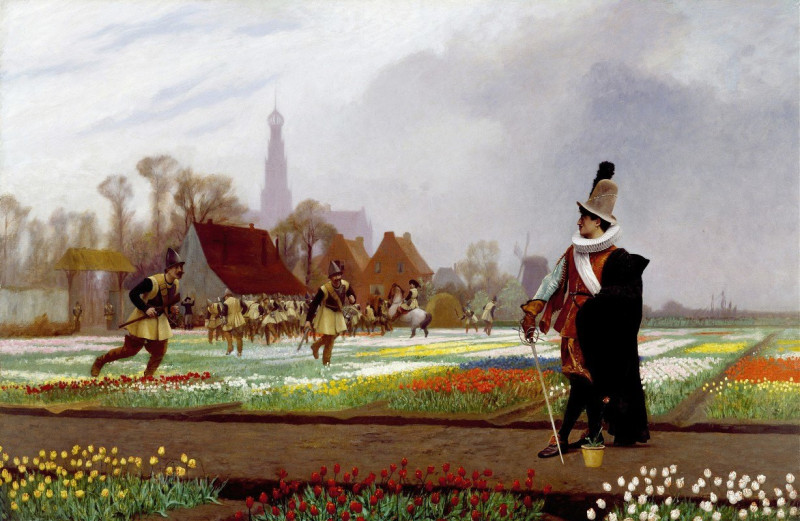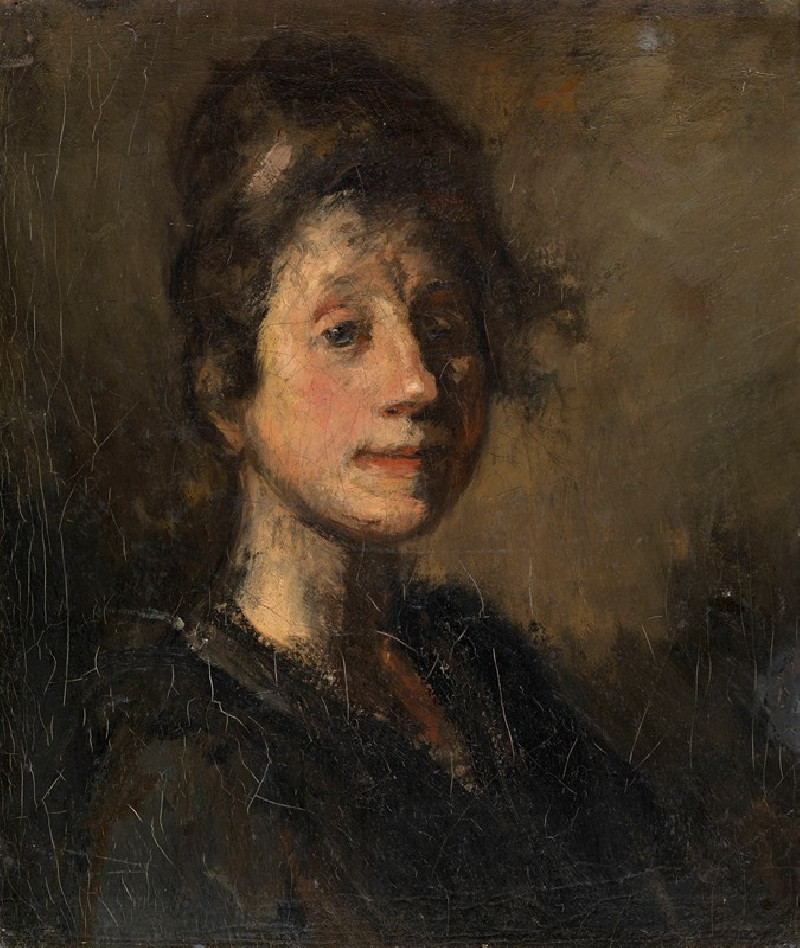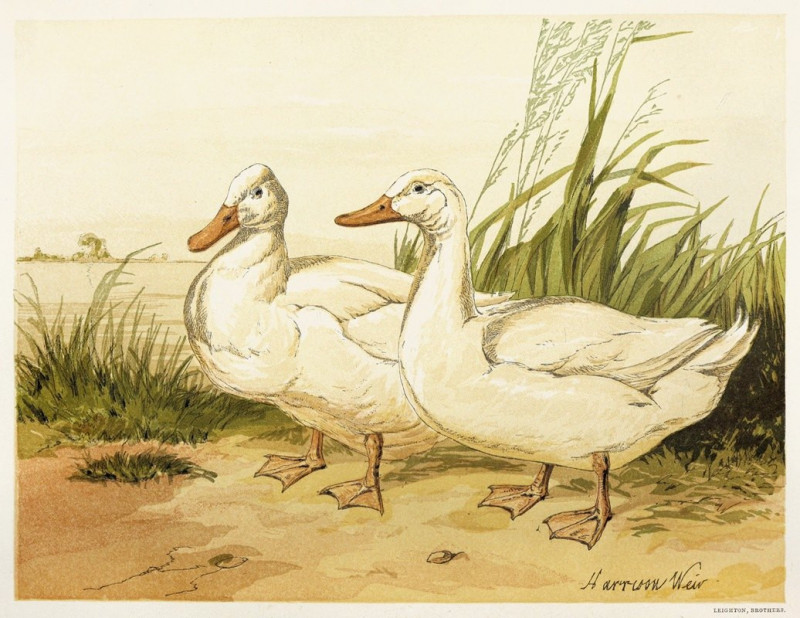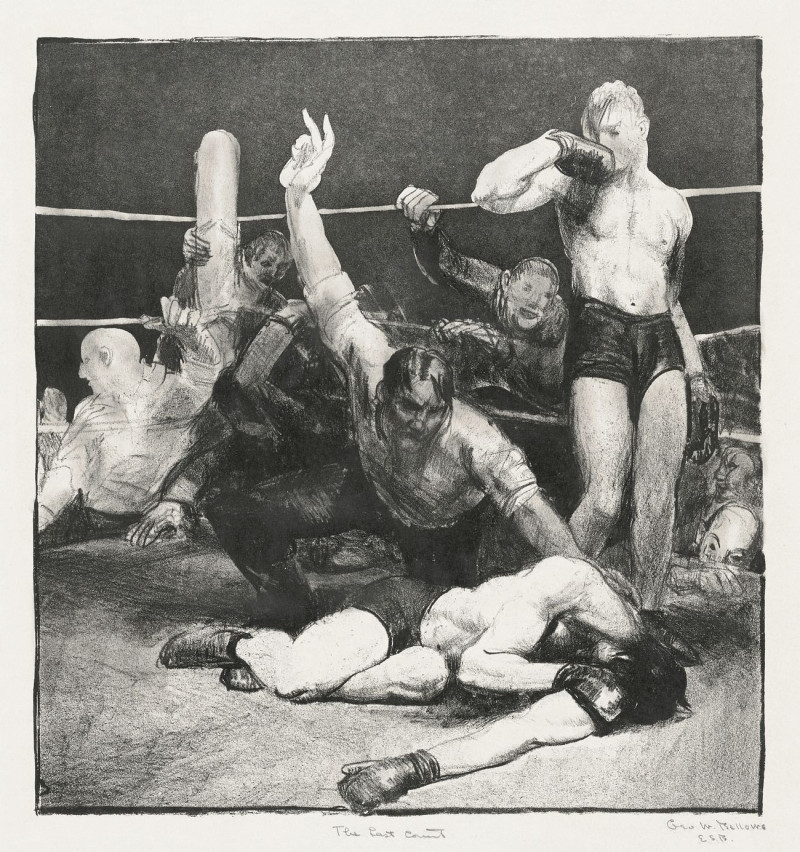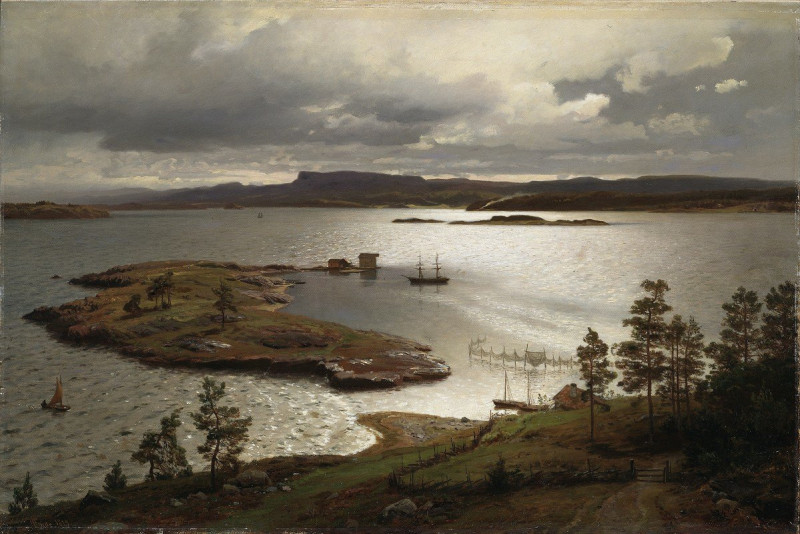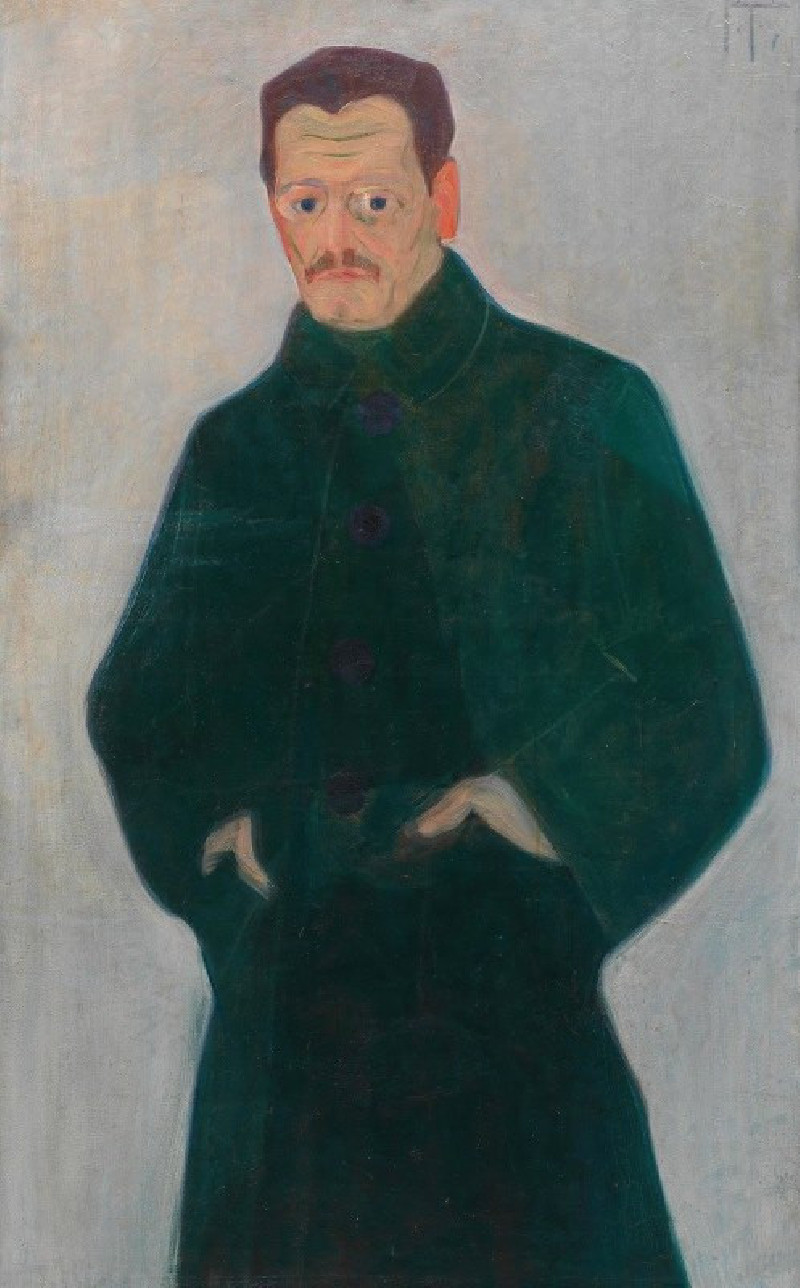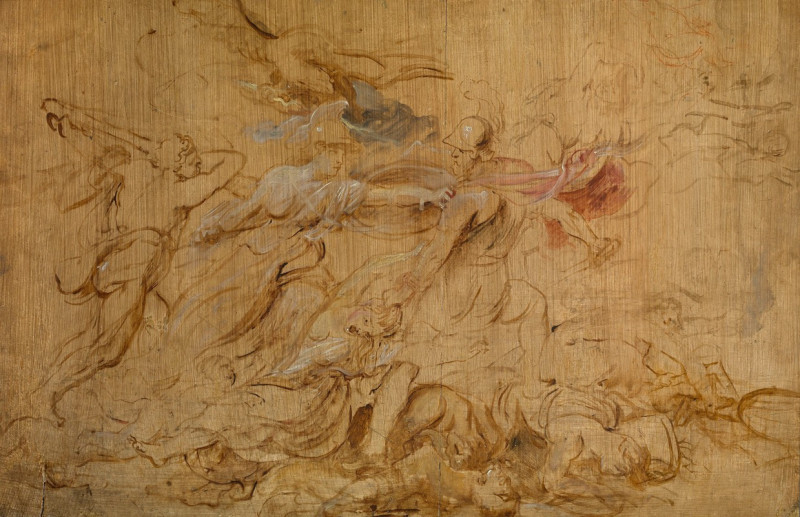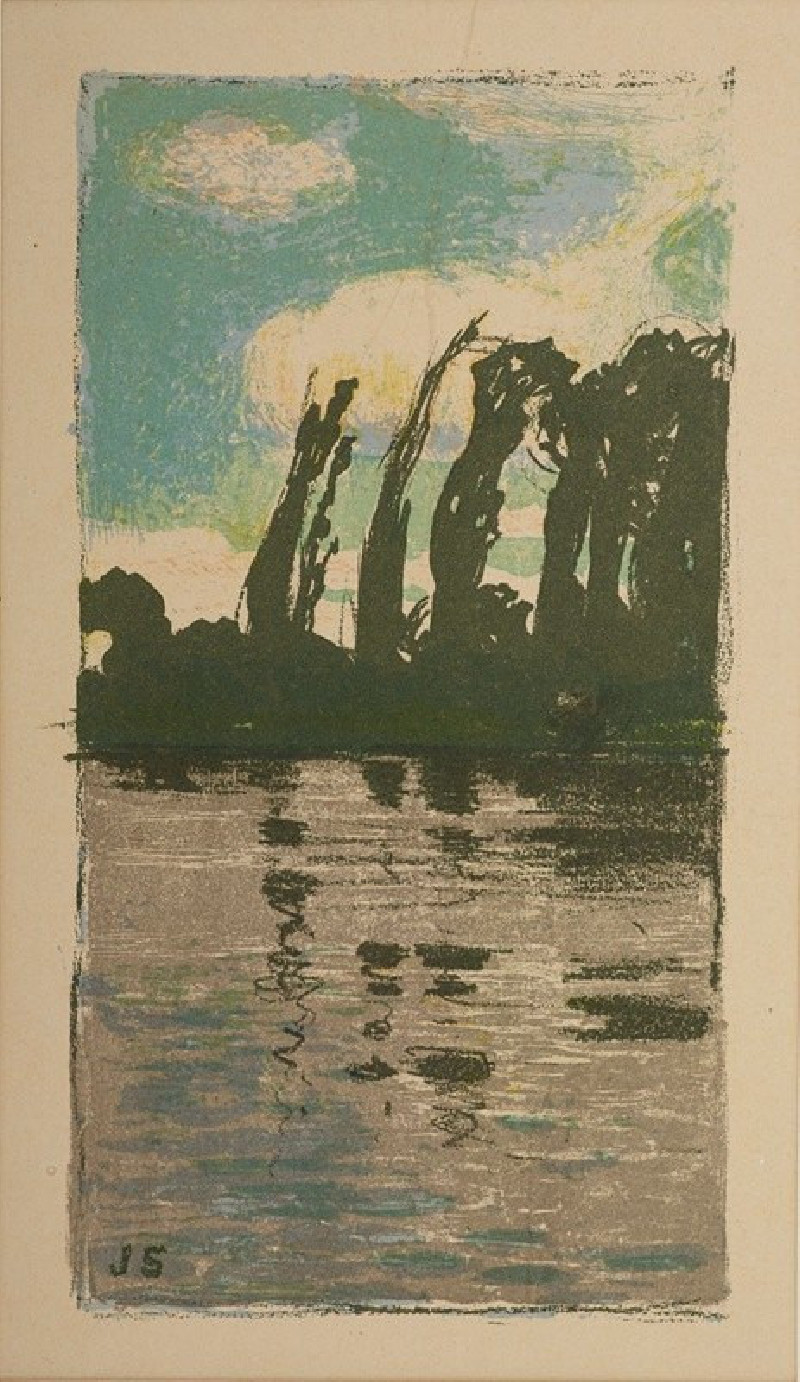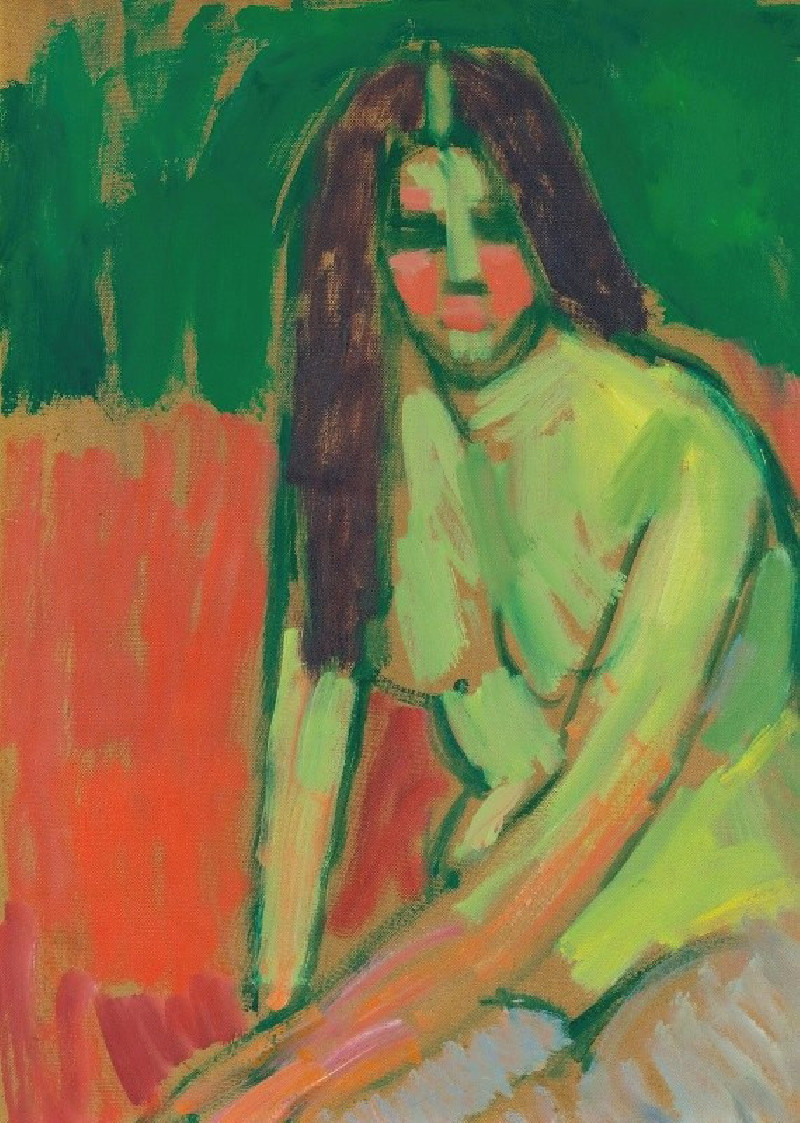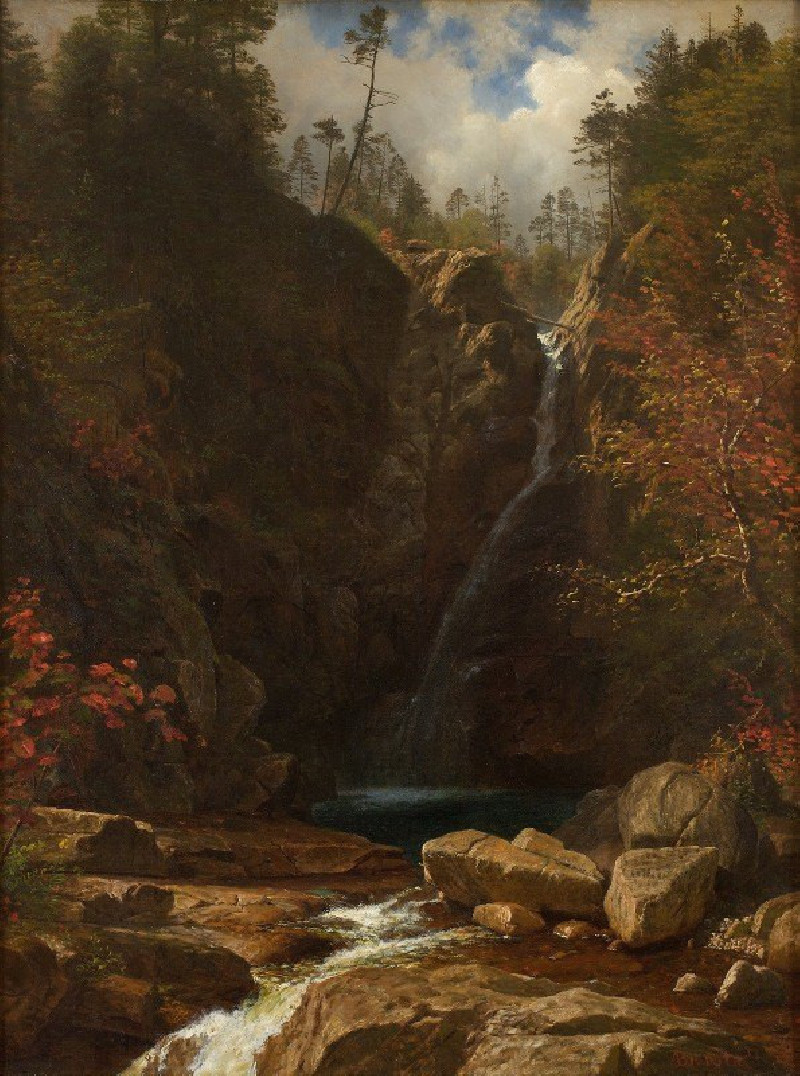On the Beach, Dieppe (1864)
Technique: Giclée quality print
Recommended by our customers
More about this artwork
In the evocative painting "On the Beach, Dieppe" by Eugène Boudin, a glimpse into mid-19th century leisure at the seaside town of Dieppe is beautifully captured. The scene is set against a backdrop of vast, moody skies that subtly transition from a soft grey to brilliant patches of blue, a signature of Boudin's fascination with the northern light of France's skies.The foreground presents a lively gathering of beachgoers adorned in period attire. The women are dressed in full skirts and bonnets, their elegant figures suggesting a genteel social outing, while the men's outfits are completed with top hats and tailored suits. A focal point is a cluster of figures centrally situated, attentively gazing towards the choppy sea, possibly commenting on the weather or the scene unfolding before them.Offering a dynamic contrast to the refined visitors, a small, eager dog adds a dose of everyday life and movement, enhancing the painting's realistic feel. The artist's masterful use of loose brushstrokes contributes to a sense of immediacy and the fleeting moment of a day at the beach, capturing the wind, the murmurs of conversation, and the swish of skirts in a moment frozen in time.Boudin’s inclusion of a distant sailing ship and the obscured stretches of the wooden pier draw the viewer's eye beyond the immediate social scene, adding depth and a narrative of commerce and travel that were integral to Dieppe.This painting not only captures the essence of a leisurely day by the sea but also reflects Boudin's pivotal role in the development of outdoor painting, influencing the later Impressionist movement with his candid, atmospheric, and light-infused scenes.
Delivery
Returns
Eugène Louis Boudin (12 July 1824 – 8 August 1898) was one of the first French landscape painters to paint outdoors. Boudin was a marine painter, and expert in the rendering of all that goes upon the sea and along its shores. His pastels, summary and economic, garnered the splendid eulogy of Baudelaire; and Corot called him the "King of the skies".


